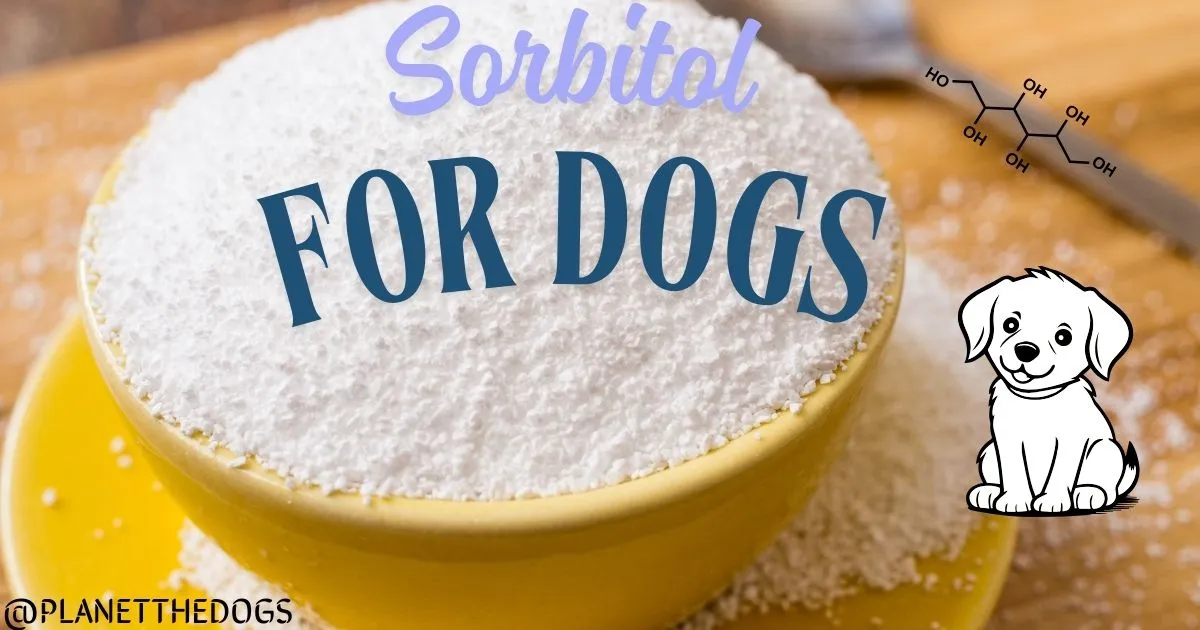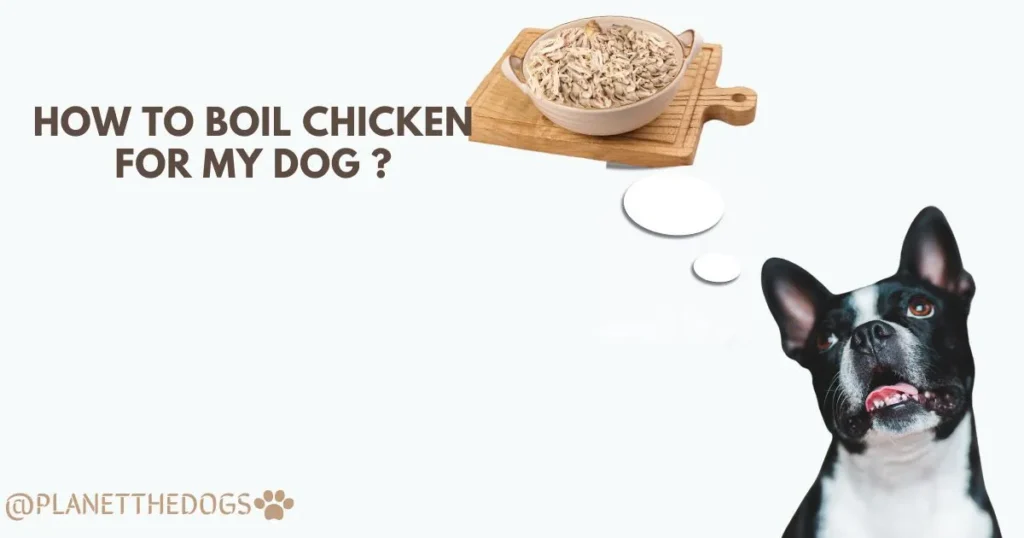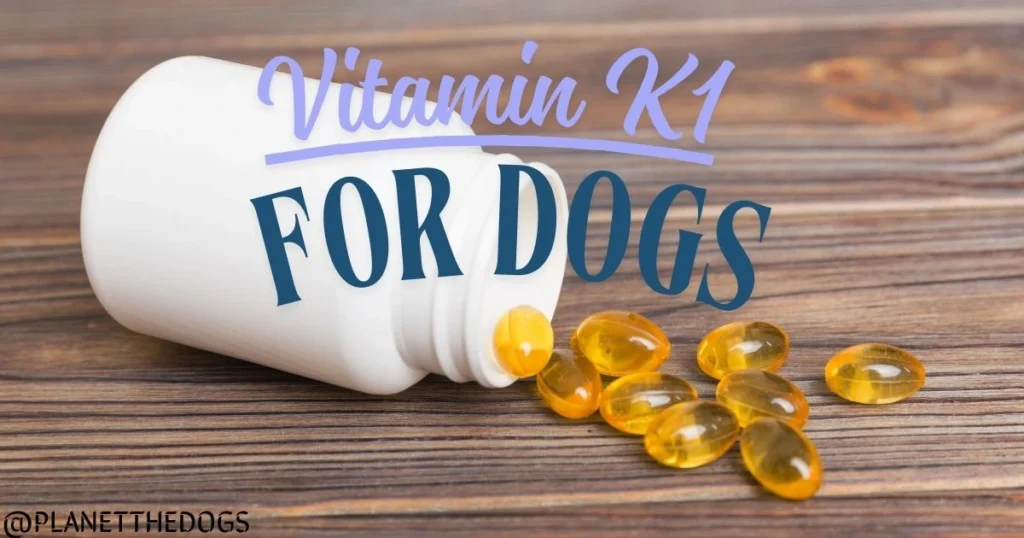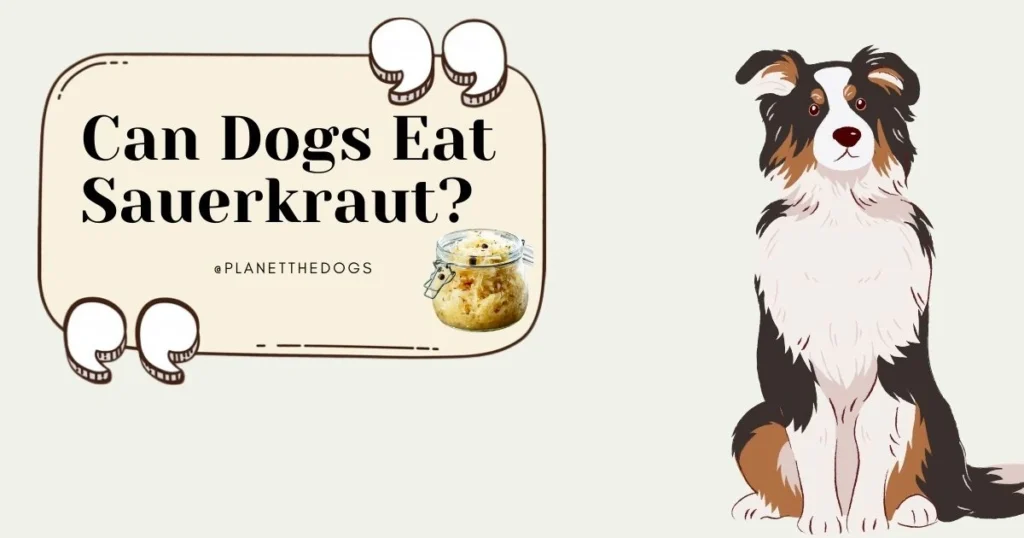Is Sorbitol Safe for dogs?
Is Sorbitol Safe for Dogs? Pet owners are often concerned about artificial sweeteners and their potential health risks. While xylitol is well-known for being toxic to dogs, many wonder about sorbitol. So, is sorbitol safe for dogs? It’s essential to understand its effects and how it can impact your dog’s health.
Table of Contents
Key Takeaways
- Sorbitol is a sugar alcohol found in many products
- Not all artificial sweeteners have identical effects on dogs
- Moderate consumption might differ from large intake quantities
- Individual dog sensitivity varies significantly
- Veterinary consultation is crucial for specific dietary concerns
Understanding Sorbitol and Its Common Uses
Sorbitol is a sugar alcohol found in many products we use every day. It has special properties that make it useful in food and personal care.
What is Sorbitol?
Sorbitol is a sugar alcohol made from natural sources. It tastes sweet but has fewer calories than regular sugar. Chemically classified as a polyol, it keeps moisture and adds sweetness without raising blood sugar too much.
Natural Sources of Sorbitol
- Apples
- Pears
- Peaches
- Cherries
- Plums
Fruits like apples and pears have sorbitol, making them sweet and juicy. But sorbitol is found in more than just fruits.
Commercial Applications
| Industry | Common Uses |
|---|---|
| Food Production | Sugar-free candies, chewing gum, baked goods |
| Pharmaceutical | Medicinal syrups, tablet manufacturing |
| Cosmetics | Moisturizers, toothpaste, skincare products |
Dog owners should know sorbitol is in many household items. Knowing this helps keep pets safe from sorbitol dangers.
“Knowledge about sorbitol is crucial for responsible pet ownership and safety.” – Veterinary Nutrition Expert
Where You Might Find Sorbitol in Everyday Products
Sorbitol is a sneaky sugar alcohol found in many household items. Knowing where sorbitol is can help keep dogs safe. It’s hidden in many products, so it’s easy to miss.
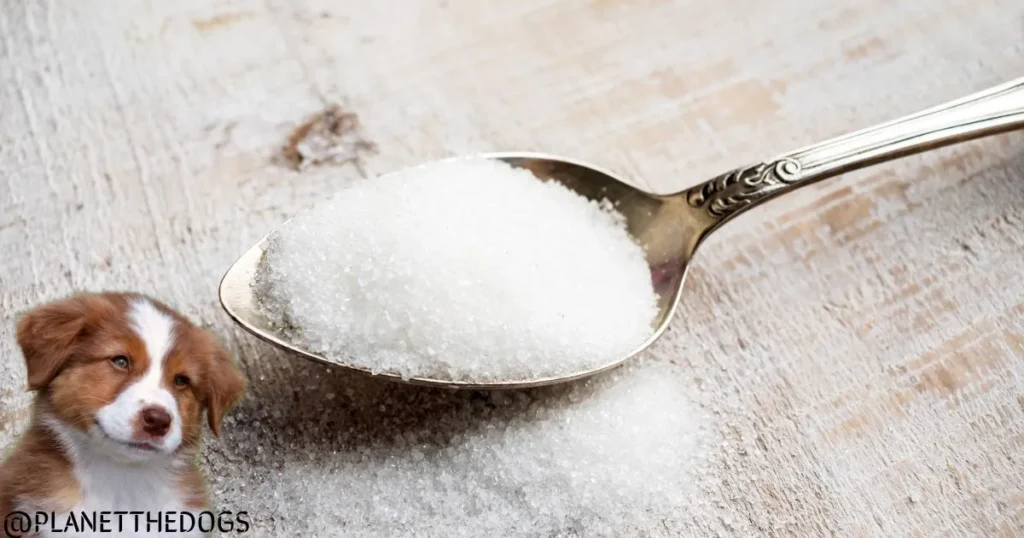
Common sources of sorbitol include:
- Sugar-free chewing gum
- Diet and diabetic-friendly foods
- Sugar-free candies
- Certain medications and liquid medicines
- Dental care products like toothpaste
- Low-calorie baked goods
Dogs can’t digest sorbitol well. This can lead to digestive problems. Manufacturers often use sorbitol as a low-calorie sweetener or sugar substitute, making it hard to spot.
“Always check ingredient labels carefully to protect your furry friend from accidental sorbitol consumption.”
Some unexpected places you might find sorbitol include:
- Cough syrups
- Sugar-free ice cream
- Certain mouthwash brands
- Sugar-free chewing gums
- Vitamin supplements
Pet owners should always check labels to avoid sorbitol for their dogs.
Is Sorbitol Safe for Dogs?
Pet owners often wonder about the safety of ingredients in human products. Sorbitol is one such ingredient. It’s important to know the risks and effects of sorbitol on dogs for their well-being.
Toxicity Levels
Sorbitol can be harmful to dogs if they eat too much of it. The danger depends on several things:
- How much they eat
- How big they are
- How their body breaks it down
Risk Factors
Some dogs are more at risk from sorbitol. These include:
- Small breed dogs with less body weight
- Dogs with digestive problems
- Older dogs with slower metabolism
- Dogs with sensitive stomachs
Safe Consumption Limits
Vets advise caution with sorbitol. Even small amounts can cause problems. Eating too much can lead to serious stomach issues.
Consult your veterinarian before introducing any new foods to your dog’s diet.
The main worry with sorbitol is stomach upset. Is sorbitol safe for dogs? It’s best to avoid giving it to them to keep them healthy.
The Digestive Impact of Sorbitol on Dogs
Understanding how sorbitol affects dogs means looking into their digestive system. Dogs digest things differently than humans. Sorbitol is especially hard for their stomachs.
Dogs have trouble with sorbitol in their diet. The main problems come from how it affects their intestines:
- Sorbitol pulls water into the intestines
- It causes fast fermentation in the gut
- It messes with the balance of gut bacteria
The main issue with sorbitol for dogs is osmotic effects. Unlike humans, dogs can’t break down this sweetener well. This can cause uncomfortable side effects like:
- Intense intestinal gas
- Watery diarrhea
- Abdominal cramping
- Potential nutrient malabsorption
Veterinary nutritionists stress the need to understand dogs’ unique digestive sensitivities when it comes to sorbitol.
Dogs don’t have the right enzymes to handle sorbitol. Even a little can upset their stomachs. The sugar alcohol moves through their intestines, pulling water and causing fast fermentation.
Pet owners should watch out for products with sorbitol. What’s safe for humans can be tough on dogs.
Signs of Sorbitol Sensitivity in Dogs
Dog owners need to watch for signs of sorbitol sensitivity. Knowing how sorbitol affects dogs can help keep them healthy. It’s important for your dog’s well-being.
Immediate Symptoms of Sorbitol Consumption
When wondering if sorbitol is safe for dogs, it’s key to spot early signs. Dogs may show these symptoms after eating sorbitol:
- Sudden and frequent diarrhea
- Intense abdominal cramping
- Excessive gas and bloating
- Vomiting
- Significant decrease in appetite
Long-term Effects of Sorbitol Exposure
Long-term sorbitol exposure can cause serious health issues in dogs. These include:
- Chronic digestive system disruption
- Electrolyte imbalances
- Potential kidney stress
- Weight loss
- Weakened immune response
When to Contact Your Veterinarian
If your dog shows these signs, call your vet right away:
- Persistent diarrhea lasting more than 24 hours
- Continuous vomiting
- Signs of dehydration
- Significant changes in behavior
- Visible distress or pain
“Early detection and prompt medical intervention can significantly reduce the risks associated with sorbitol sensitivity in dogs.” – Veterinary Nutrition Experts
Always talk to a vet to understand your dog’s health needs and sensitivities.
Common Products Containing Sorbitol That Dogs Should Avoid
Knowing where sorbitol is found is key to keeping your dog safe. Many common items have this sugar alcohol, which can harm dogs if they eat too much.
When looking into sorbitol and dogs, owners need to watch out for certain products:
- Sugar-free chewing gum
- Dental care products
- Low-calorie snacks
- Some peanut butter brands
- Certain medications and supplements
Be careful with brands like Trident, Orbit, and Extra. They often use sorbitol, making their gum a big risk for dogs.
| Product Category | Sorbitol Risk Level | Recommended Action |
|---|---|---|
| Sugar-free Gum | High | Keep completely out of dog’s reach |
| Sugar-free Candies | High | Store in sealed containers |
| Certain Peanut Butters | Medium | Check labels before sharing |
Pro tip: Always read ingredient labels carefully and consult with your veterinarian about safe treats for your dog.
“Prevention is always better than cure when it comes to your pet’s health.” – Veterinary Nutrition Experts
To keep your dog safe from sorbitol, you need to be careful and manage your home well. By knowing where sorbitol can be found, you can make a safer place for your pet.
Natural Alternatives to Sorbitol for Dogs
Dog owners looking for safe sweeteners can relax. Knowing if sorbitol is safe for dogs helps make better choices for their diet and treats.
Exploring about sorbitol and dogs reveals many natural, safe options. These alternatives can meet your dog’s sweet cravings without health risks.
Safe Sweetener Options for Canines
- Stevia (pure, without artificial additives)
- Small amounts of raw honey
- Pureed fruits like bananas or applesauce
- Coconut nectar (in minimal quantities)
Healthy Homemade Treat Alternatives
Making dog-friendly treats is fun and healthy. Here are some natural sweet options:
| Treat Type | Ingredients | Benefits |
|---|---|---|
| Frozen Fruit Bites | Blueberries, strawberries | Low-calorie, antioxidant-rich |
| Peanut Butter Balls | Natural peanut butter, pumpkin | Protein-packed, digestive support |
| Vegetable Chews | Sweet potato, carrots | Fiber-rich, vitamin-dense |
Remember, moderation is key when introducing new treats. Always consult your vet before making significant changes to your dog’s diet
“The best treats are those that nourish both body and soul.” – Veterinary Nutrition Experts
Choosing natural, sorbitol-free options keeps your dog happy and healthy. It also avoids digestive problems.
Prevention Tips: Keeping Your Dog Safe from Sorbitol
Keeping your dog safe from sorbitol needs careful attention and smart steps. Knowing where sorbitol might be found is key to avoiding health risks for your dog.
Start by making your home safe for your dog. Dogs are curious and might eat things they shouldn’t if they can get to them.
- Store sugar-free products in high, locked cabinets
- Keep chewing gum and candies out of your dog’s reach
- Educate family members about sorbitol dangers
- Check ingredient labels before sharing human foods
When wondering “is sorbitol safe for dogs?”, remember: prevention is the best answer. Create a plan to keep your pet safe from harmful substances.
“Awareness and careful monitoring can prevent accidental sorbitol ingestion in dogs.” – Veterinary Nutrition Experts
Be careful when walking your dog. Look out for trash and discarded food that might have sorbitol. Places like trash cans and public areas can be dangers.
- Keep dogs on leash during walks
- Train dogs to ignore dropped food
- Carry healthy dog treats as distractions
Regular vet visits are important. They help you know about diet risks and learn how to keep your dog safe.
What to Do If Your Dog Consumes Sorbitol
Discovering that your dog has ingested sorbitol can be stressful. Knowing the effects and the right steps is crucial for your pet’s health and safety.
Immediate Emergency Steps
Act quickly if you think your dog has eaten something with sorbitol. Here are the first steps:
- Stay calm and assess the situation
- Check the amount of sorbitol consumed
- Identify the specific product ingested
- Call your veterinarian immediately
Veterinary Treatment Options
Is sorbitol safe for dogs? It depends on the amount and how sensitive your dog is. Vets usually suggest these treatments:
| Consumption Level | Recommended Action |
|---|---|
| Small Amount | Monitoring and supportive care |
| Large Amount | Potential IV fluid therapy |
| Severe Symptoms | Emergency medical intervention |
Your vet might suggest specific treatments based on your dog’s symptoms. This could include:
- Activated charcoal to prevent further absorption
- Gastric lavage for recent ingestion
- Electrolyte replacement
- Symptomatic support
“Early intervention is key to managing potential sorbitol-related complications in dogs.” – Veterinary Nutrition Experts
Prevention is always better than cure. Keep sorbitol-containing products away from your dog. Always consult a professional if you’re worried about your pet’s diet.
Understanding Food Labels and Sorbitol Content
Reading food labels can be hard, especially to avoid harmful ingredients like sorbitol for your dog. It’s important to know where sorbitol is found to keep your pet safe.
When looking at food labels, look for terms that show sorbitol or similar sugar alcohols. These ingredients might be listed under different names that are easy to miss.
- Sugar alcohol indicators
- Artificial sweetener terms
- Common product categories
Understanding food labels means paying close attention to ingredient lists. Knowing about sorbitol and dogs helps spot hidden sources in everyday items.
| Product Category | Potential Sorbitol Sources | Risk Level |
|---|---|---|
| Sugar-free Gum | High sorbitol content | Extreme Risk |
| Diet Desserts | Artificial sweeteners | Moderate Risk |
| Low-calorie Snacks | Sugar alcohol additives | Low Risk |
Watch for ingredients like:
- Sorbitol
- Maltitol
- Xylitol
- Mannitol
“Knowledge is the best defense when protecting your pet from potential dietary risks.” – Veterinary Nutrition Experts
Pet owners should always read labels before buying food or treats. Using digital apps and quick guides can help spot dangerous ingredients fast.
Conclusion
Knowing if sorbitol is safe for dogs is key for pet owners. This sugar alcohol is found in many products but can be harmful. It’s important to check what your dog eats to avoid health problems.
Preventing sorbitol issues is the best way to go. Always check labels and keep harmful items away from your dog. Talking to a vet can also help a lot.
Getting advice from a vet is crucial. Every dog reacts differently to substances like sorbitol. So, getting advice tailored to your dog is very important.
Keeping your dog safe means learning and being careful. You need to know about dangers in their food and environment. This way, you can keep your dog healthy and happy.
Also Read: Can Dogs Eat Eggshells?
FAQ
What exactly is sorbitol?
Sorbitol is a sugar alcohol used in sugar-free products. It’s found naturally in some fruits. It’s also made artificially for use in foods, medicines, and personal care items.
Is sorbitol toxic to dogs?
Sorbitol can harm dogs, especially in big amounts. It might cause diarrhea, vomiting, and stomach pain. Eating a lot of it can lead to serious health problems.
Where might dogs accidentally encounter sorbitol?
Dogs might find sorbitol in sugar-free gum, diabetic foods, some peanut butters, toothpastes, medicines, and snacks. These are dangers if dogs can get to them.
What symptoms should I watch for if my dog consumes sorbitol?
Look for signs like a lot of drooling, vomiting, diarrhea, belly pain, and more thirst. Big doses can cause serious stomach problems and dehydration.
How much sorbitol is considered dangerous for dogs?
The risk depends on the dog’s size, weight, and health. Even a little can upset their stomach. Call your vet if your dog eats something with sorbitol.
What should I do if my dog accidentally consumes a sorbitol-containing product?
Call your vet right away. Tell them about the product, how much your dog ate, and their size. Don’t make your dog vomit unless your vet says to. Watch them closely for any bad signs.
Are there safe alternatives to sorbitol for dogs?
Yes, safe options include natural fruits, dog treats, and vet-approved sweeteners. Always check with your vet before adding new treats to your dog’s diet.
How can I prevent my dog from accessing sorbitol-containing products?
Keep sugar-free items out of reach. Teach family members about the dangers. Always check labels and keep trash bins closed. Watch out for things like gum that dogs might like.

